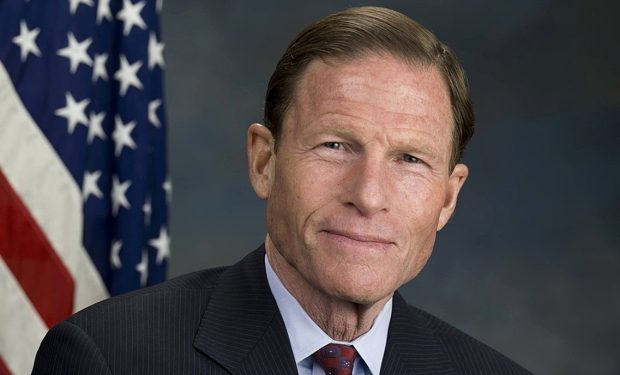King Abdullah of Jordan, the 62-year-old sovereign of the Middle Eastern kingdom with a population of nearly 12 million, is the “key” to “peace & stability in the region” writes Sen. Richard Blumenthal (D-CT) after his recent trip to Jordan amidst war and soaring tensions in the region.
King Abdullah is key. In our conversation, he was emphatic on how monumental this moment is, & we must seize it. A pause before Ramadan, is potentially within reach. Right away he’s looking to deliver food, medicine & more to Gaza.
— Richard Blumenthal (@SenBlumenthal) February 21, 2024
Abdullah II bin Al-Hussein — acknowledged to be a 41st-generation direct descendant of the Islamic prophet Muhammad — has been King of Jordan since 2009, when he ascended the throne after the death of his father, King Hussein bin Talal. Abdullah rules a country without oil wealth that has used diplomacy and strong international and inter-regional relationships — some say dependencies — to demonstrate exceptional stability through numerous crises including the 2011 Arab Spring.
Bordered by Syria, Iraq, Saudi Arabia, the Palestinian West Bank and Israel, Jordan occupies a central place both geographically and politically in the combustible region.
Like much of Arab royalty, King Abdullah was educated in the West — in his case at the elite Deerfield Academy preparatory school, then at Oxford University and at Georgetown University’s School of Foreign Service.
Abdullah’s Western roots go beyond education, too: early in his extensive military career, after training with Jordanian forces in England, he was commissioned as a second lieutenant in the British Army and served as a troop commander. Abdullah also studied in the West at the American Naval Postgraduate School and later commanded Jordan’s Special Forces, attaining a rank of Major General.
[NOTE: The King’s Western-friendly background combined with his military experience help make Abdullah a top U.S. partner in the region, along with his country’s long financially beneficial relationship with the U.S. The countries established diplomatic relations in 1949. The U.S. considers Jordan a major non-NATO ally and has approximately 3,000 U.S troops there. Jordan also has diplomatic relations with Russia.]
Blumenthal says Jordan “will be critical in facilitating a pause in the war, humanitarian relief, & hostage return.” The Senator also credits Jordan with possessing the regional credibility to help foster long term goals like “self-governance for Palestinians” in a two-state solution. (Jordan normalized relations with Israel in 1994, agreeing to share water and other resources, a detente which has so far held.)
Management of the tensions in the region — and balancing Jordan’s position — is increasingly challenging. Many Jordanian citizens reportedly celebrated the Hamas attacks on Israel in October 2023 and Jordan has castigated Israel for its response to the attacks and its deadly impact on Palestinian civilians, recalling its ambassador to Israel in November, saying Israel was creating an “unprecedented humanitarian catastrophe.”
Our fearless air force personnel air-dropped at midnight urgent medical aid to the Jordanian field hospital in Gaza. This is our duty to aid our brothers and sisters injured in the war on Gaza. We will always be there for our Palestinian brethren pic.twitter.com/HOWI2VL7hL
— عبدالله بن الحسين (@KingAbdullahII) November 5, 2023
The U.S. has essentially made the same accusation, expressed less forcefully, over Israel’s conduct of the war, even as it continues to offer Israel its full support. Relations between President Joe Biden and Israeli Prime Minister Benjamin Netanyahu are reportedly at a “low point.”
Biden met with Abdullah at the White House earlier this month, with an agenda that included a ceasefire in Gaza, the return of hostages, and the long-term solution that Blumenthal writes about — Palestinian self-governance.
Blumenthal further praised the Jordanian-American partnership — among the U.S.’s strongest and perhaps most important in the region after Israel — saying Jordan and the U.S. are aligned together against Iran, whose “malign aggression” threatens the region generally and North Jordan specifically, where “U.S./Jordan combined forces” have been attacked.
Iran’s malign aggression is evident in Northern Jordan, where we visited with U.S./Jordan combined forces—courageous, dedicated troops partnering in countering Iranian militia attacks. Recent casualties at nearby Tower 22 base hit them hard. New weapons create new challenges.
— Richard Blumenthal (@SenBlumenthal) February 21, 2024
